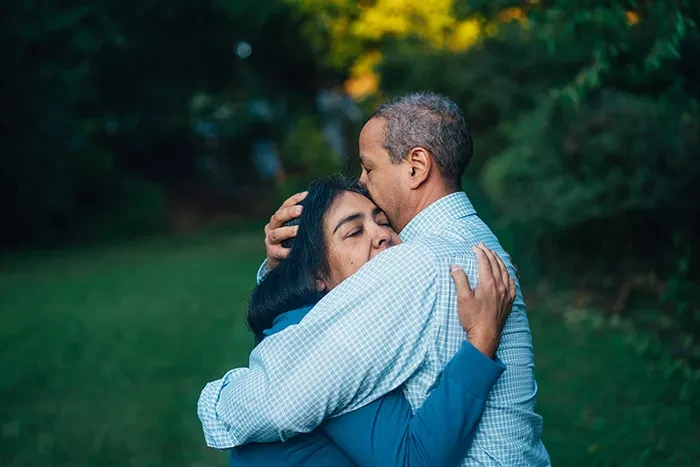Addiction and families: Common challenges

Published Jan. 15, 2017
If your loved one is suffering from addiction, here are some common challenges you may be grappling with.
Don’t wait or go slow
Waiting for someone to “hit rock bottom” can be risky, even dangerous. The longer you wait, the sicker the person gets, and this can have deadly consequences. As soon as you see signs of a problem, especially when it comes to teens, see an addiction specialist and get aggressive about intervening.
Recognize the dynamics
Because this disease has been shrouded in silence and darkness for so long, family members typically may not recognize its symptoms. They don’t know that their loved one is suffering from a chronic disease. So, when they witness behaviors that they don’t even know are symptoms of the disease (e.g., emotional detachment, physical absence, failing to fulfill responsibilities) the natural human response is to “cover” for or “excuse the behavior” of their loved one. Some common responses in a situation like this include:
- Rationalization – Oftentimes family members witness a gradual decline in their loved one. It’s tempting and natural to think things like: “He/she is not that bad.” “He/she is a good person and will figure things out.” “He/she hasn’t lost their job.” “He/she hasn’t gotten a DUI.” Rationalization can delay connecting those who suffer with the resources they need to get well.
- Minimization – Minimization and rationalization are close cousins. Family members often find themselves minimizing the changes they’re observing in their loved one. They probably don’t understand what’s going on and are therefore inclined to not give the situation the attention it deserves.
- Care-taking – Here again, our natural human inclination is to care for those we love, often believing that if we just did more, just tried harder, things would return to normal. This becomes problematic when dealing with people suffering from addiction in that it delays the desire to seek help.
Put personal safety first
If someone suffering from drug and alcohol addiction is jeopardizing your personal safety, you must take care of you first. Get to a safe place. There will be time later to investigate ways to help.
